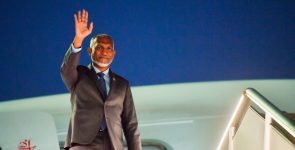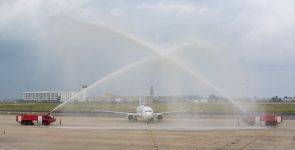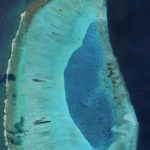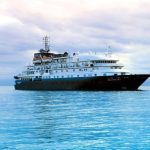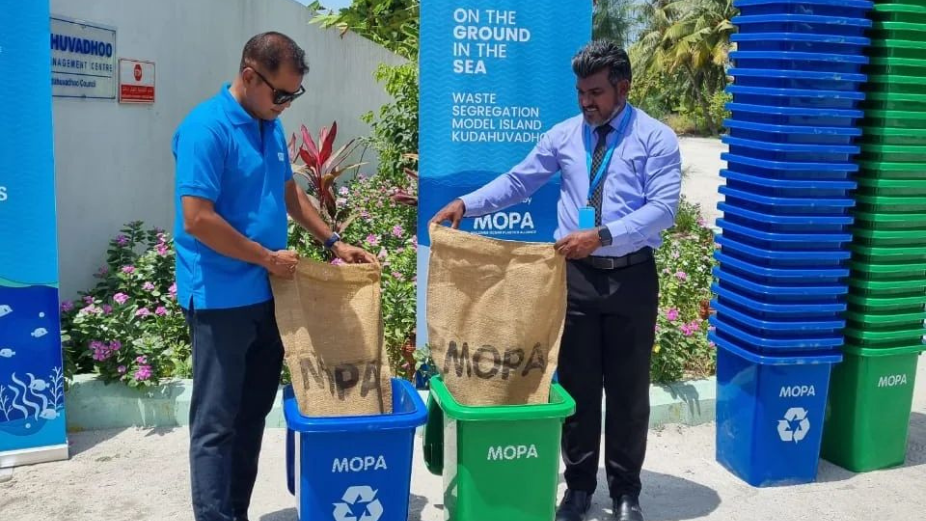
Kudahuvadhoo, a fast-growing regional economic hub in the Maldives, is leading by example in leveraging community participation and partner resources to transition from a linear “use and dispose” method of waste management to a circular economy.
In September 2021, the island of Kudahuvadhoo in Dhaalu Atoll became the debut host of a model island project launched by Maldives Ocean Plastics Alliance (MOPA). Together with key partners, Coca-Cola and its bottling partner in Maldives, Male Aerated Water Company, MOPA launched the ‘On the Ground, In the Sea: Waste Segregation Model Island Kudahuvadhoo’ programme in island.
“What we are implementing in our island will create greater opportunities for our people to take care of their environment. Even though we are pioneering this model island system with the generous support of our partners, our hope is that other islands in Dhaalu atoll and beyond will also join this initiative to create a circular economy for plastic waste and preserve our pristine environment,” says Mr. Ibrahim Fikury, President of Kudahuvadhoo Council.
To kick-off the initiative, MOPA provided collection bins to the island council. The Dhaalu Atoll Education Centre then hosted a community awareness and education programme on solid waste management, segregation at source, and recycling. Students from the centre, their guardians, and council members attended the session. Similar initiatives such as placing billboards at key locations of the island and hosting competitions for students about sustainability are held on an ongoing basis.
“Any initiative must transfer ownership of its resources, operations, and knowledge to the people; in this case, the people of Kudahuvadhoo, in order for it to be successful. This significantly increases the likelihood that any intervention will be sustained. That’s why we adopted a bottom-up approach,” says Mr. Thoriq Ibrahim, Founder and Chairman of MOPA. “Kudahuvadhoo became the first island to fully comply with the new waste management regulation, including segregation at household levels. This a notable achievement.”
The programme, launched even before the Maldivian government mandated waste segregation at household level from June 2022, has seen over 1,000 bins supplied to the island. Each household is given two bins and four gunny bags to segregate waste into four main categories: organic waste, plastics, metal and glass, and other (mixed waste). This allows the island’s waste management centre to effectively collect and handle waste. The segregated waste is collected from households and taken to Kudahuvadhoo Waste Management Centre (KWMC), operated by the island council, on a daily basis.
Since the project’s launch, 8.7 tonnes of plastic waste have been collected from Kudahuvadhoo. As the logistics partner of the project, Coca-Cola in Maldives supports MOPA in transporting the collected PET bottles from Kudahuvadhoo to capital Male. The PET bottles – the most widely recycled plastic in the world – are then handed over to Parley Maldives to be exported for recycling and upcycling into everyday items like branded footwear, swimwear and garments.
“Coca-Cola is committed to the principles of reducing waste, reusing and recycling resources and products. In Maldives, we have been taking bold steps under the strategic pillars of Design, Collect and Partner to create a circular economy around the use of our packaging,” says Mr. Pankaj Sinha, Managing Director for Coca-Cola in the Maldives. “We are pleased to have forged strong partnerships with local organisations like MOPA that are involved in practical solutions to address plastic waste and to see the promising results of these partnerships.”
“Coca-Cola and MAWC are working to build a better, more sustainable future together. We are dedicated to improving people’s lives, communities, and the environment,” adds Mr. Sanjay Maniku, Managing Director at Male’ Aerated Water Company. “The model island project in Kudahuvadhoo has proven how empowering communities to take action can make a difference in our efforts to create a circular economy around plastic. We look forward to supporting MOPA in expanding the model island programme.”






